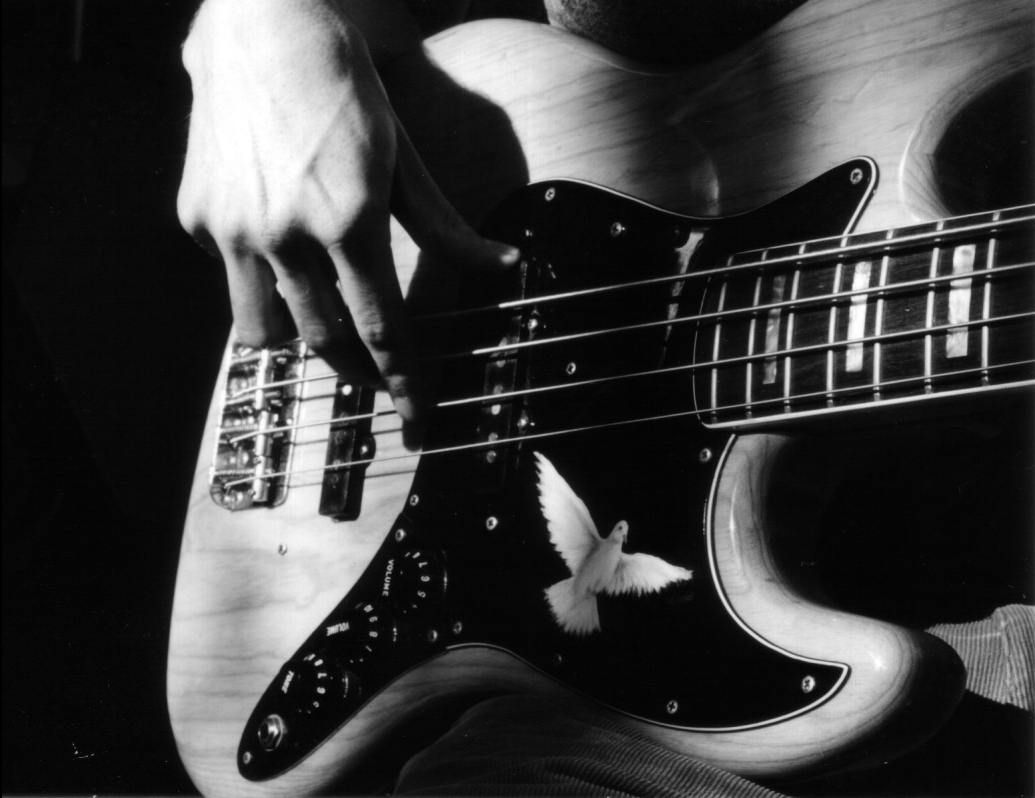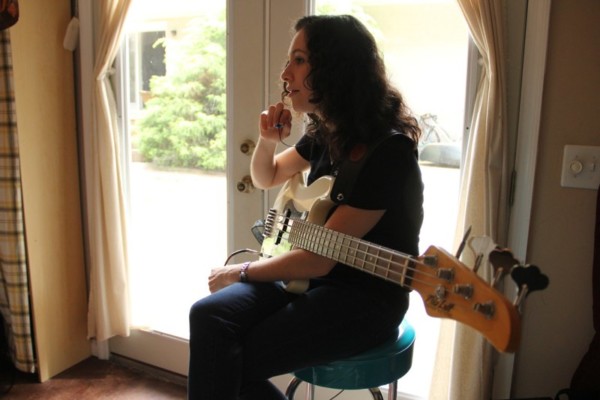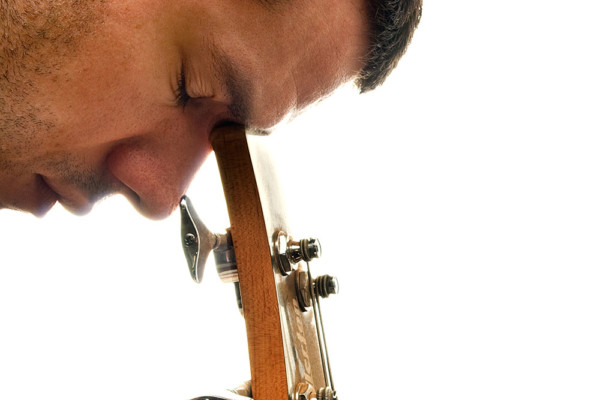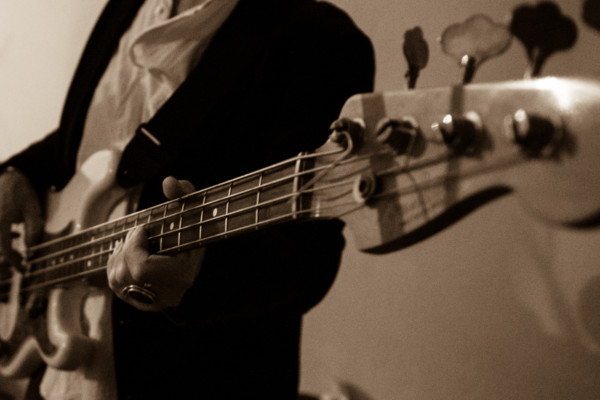Learning Tunes: A Checklist for Bass Players

Q: I’ve started learning jazz bass about 7 years ago, coming from over 20 years of violin (classical) training. The first thing I did to move from classical music to jazz was to get all Aebersold play-a-longs, and every transcription I could get on Earth, and dig them. I now feel that this is holding me back quite a bit, since it is very hard to me to play without reading the charts, and it is even harder to practice without a play-back giving me hints of the harmony. Any ideas on how can I get rid of these two walking sticks to my walking bass*?
*sorry for the pun, could not resist!
A: You are forgiven for the pun. Sometimes, it just can’t be helped!
I have a few thoughts related to learning tunes and many of my realizations came as a result of trying to learn tunes in all of the wrong ways myself.
- Don’t just start grabbing random tunes out of a list or about of a book. Start (or continue) listening to albums, both classic and modern, and pick tunes that you actually want to know. If you have any kind of emotional connection to the music, it’ll make the process fun and exciting, as opposed to dreary and monotonous.
- Ditch the sheet music. It’s an enormous crutch and, when trying to really learn music and not just play it properly in the moment, it only gets in the way.
- Start by listening to the tune over and over again until you could hum or sing it on your own. If you can sing the root motion, all the better!
- Learning tunes is not a mental exercise, it is an aural exercise. You shouldn’t be trying to memorize a seemingly random collection of chord changes but rather learning to hear different types of turnarounds, chord qualities and the relationships between one chord and the next.
- Start by just trying to hear the root motion and play along. Play in a 2-feel or even just one note per chord. Focus on hearing the motion of the roots.
- Pay attention to the relationships between chords and hear the longer arc of changes. Learn what a (iii-7 vi-7 ii-7 V7) sounds like. Learn the difference between that and a (I VI7 ii-7 V7) (note, not only did I use the tonic instead of the iii chord, but I also made the vi-7 chord dominant (acting as a V of ii)). Learn what tri-tone substitutions song like and explore how they relate to standard resolutions, etc. This may seem like a lot of gibberish, and I’ll be the first one to complain that the vernacular is a huge part of what scares people away from learning theory. But, it’s less important that you can write a harmonic analysis and expound upon virtues of a “back door ii-v” than it is that you learn to hear what things sound like and associate them with the notes/shapes on your fretboard.
- RINSE, REPEAT!! I find that, when a student complains that they just can’t seem to memorize the changes to “X” song, if I dig a little bit, I’ll find that they didn’t play and/or listen to the tune nearly enough. They might have stared at the lead sheet for a while and tried to play along while not looking, for example. Nope… Loop that tune. Play it for an hour. Ditch the music and play along with recordings or a play-along and just keep playing it. Stop and figure out any trouble spots and do it again. Repetition is the key to memorization. I guarantee that if you play a tune for 2 hours one day and then play it again, every day that week, you’ll have it down pat.
- Set a goal. Try and learn one tune per week, or per month… whatever it is. It’s not a race but keep yourself pushing forward.
- Don’t get overwhelmed by the number of tunes out there. It’s a lifelong process and, with every tune you learn, you’ll find that the rest come easier. There are only so many variations out there and you’ll find yourself thinking, “oh, this is almost like the A section to “My Romance” but with “X” variation heading to the bridge. Todd Johnson once told me that, once you know fifty tunes, you know ALL of them. And I believe him.
- LISTEN TO JAZZ. If you find yourself hating the process and think you would rather be sanding drywall than playing “Beautiful Love” again… Ask yourself why you are trying to learn jazz standards in the first place. I find a LOT of students who don’t like jazz, don’t want to play jazz, and couldn’t care less about the process, driving themselves batty trying to practice tunes and understanding jazz harmony. While I wholeheartedly agree that the study of jazz and jazz harmony is the fast track to understanding how music works, developing the ear, and learning your instrument well, I also don’t think that it’s for everybody. You have to want to do it, otherwise, it would be torture. There are as many ways to learn to play as there are ways to play. Don’t do it because you read an article and I or anyone else said to… Do it because you want to or at least because you want to be the type of player that necessitates having worked on it. Yes, if you want to solo over changes like Jeff Berlin, you will have to get deep in the jazz swamp and work through it to the other side but, if you truly want to play like that and you listen to music like that, you’ll likely be excited to understand it and work through it. If you’re in music school but only listening to Sepultura, Sound Tribe Sector Nine, or James Brown, yes you may be curious about what the study could provide you musically but, ultimately, you’ll struggle unless you really dig into the style and listen to the music. Studying jazz without listening to jazz is like learning to surf by rollerblading near the ocean. It just ain’t gonna happen in any real way. You can watch all of the YouTube videos ever made but, unless you get in the ocean and feel the motion of the water and understand the waves, get knocked about a bit, etc… you’ll never really get there.
You should continue using the play-along’s if you don’t have other jazz musicians/students to play with but ditch the sheet music if you’re really serious about learning tunes. It may be uncomfortable at first and you may hate what you play but if you really learn to listen, take it slow, and figure the tune out (and then play it over and over again), you’ll get there!
The one solid piece of advice that I’ve heard, more than once, from world-class jazz musicians, is that most of us don’t spend enough time playing the tunes. I know pianists who will sit down and play one tune, for 30 minutes or more. Not only does this reinforce the changes and melody in their minds and ears but it also gives them time to:
- Play all of their preconceived ideas
- Run out of ideas
- Continue exploring
- Discover new things after breaking through some barriers because they are no longer thinking changes but thinking of the sound and the flow of the tune.
Seeing the forest for the trees, in other words.
Best of luck out there! Have fun with it. Don’t let it stress you out. It’s not a race or competition. Just pick some music you love and dig deep inside of it.
Have a question for Damian Erskine? Send it to [email protected]. Check out Damian’s instructional books, Right Hand Drive and The Improviser’s Path.



